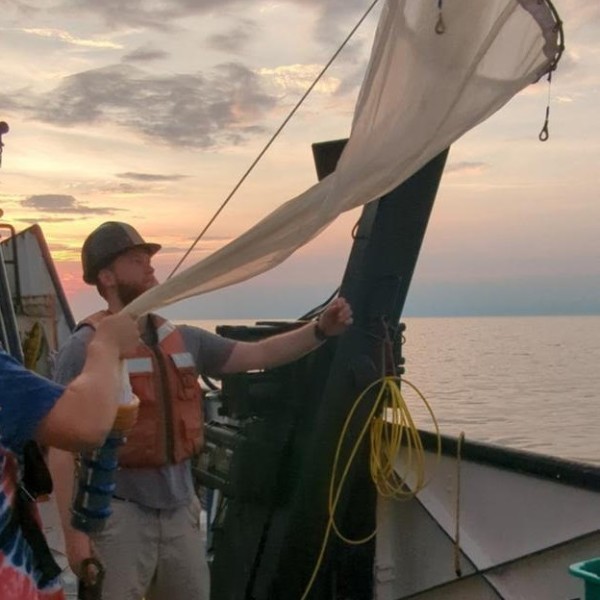- Cornell Atkinson
- Global Development Section
- Agriculture
- Applied Economics
- Climate Change
- Environment
- Food
- Global Development
- Health + Nutrition
Globally, humans spend $9 trillion on food consumption. But the true cost to feed all of us – taking into account not just the sticker price of foods, but uncounted externalities like environmental degradation and diet-related health impacts – is almost three times that amount, according to new research from Mario Herrero, the Nancy and Peter Meinig Family Investigator in the Life Sciences, Cornell Atkinson Scholar and director of the new Food Systems & Global Change program.
Calculating the true cost of food is one of a dozen research initiatives being explored in the Food Systems & Global Change program, a new, impact-oriented initiative within the Department of Global Development in Cornell’s College of Agriculture and Life Sciences. The program seeks to imagine and operationalize solutions to help feed a growing world population within planetary boundaries.
“We develop equitable, science-based integrated solutions to solve the transformational challenges of food systems,” Herrero said. “We are at the heart of national and international initiatives creating positive change for the planet, people and health.”
Herrero is at the forefront of thought leadership on food systems, leading and supporting national and international teams working on planetary health diets, United Nations agrifood systems initiatives, and transdisciplinary innovations. In the new program, he’s joined by a diverse team working at the intersection of food production, food security, human health and the environment.
“I cannot think of a better place for the Food Systems & Global Change program than at Cornell University, nor a better person to lead it than Professor Herrero,” said Lawrence Haddad, executive director of the Global Alliance for Improved Nutrition and collaborator on the EAT-Lancet 2.0 Commission and Food Systems Countdown Initiative. “Cornell has such strengths in food, agriculture, nutrition, environment, poverty and inequality and, critically, is equally good at breaking down the silos around those strengths. Professor Herrero has the leadership qualities to take the work across those boundaries, seeking out the difficult and complex questions and answering them rather than shying away from them.”



One research initiative within Food Systems & Global Change, called “Wild Futures,” is exploring the role of novel technologies and practices in pushing the boundaries of what is feasible and promoting more sustainable and just food systems. The initiative draws from science and technology, as well as history: by learning from the intended and unintended consequences of past innovations, the team hopes to build guardrails to try to avoid the worst unintended consequences of future changes, said Daniel Mason-D'Croz, senior research associate in the Department of Global Development.
“Could bacteriophages – special viruses that attack bacteria – be used to reduce antibiotic resistance in livestock production? Can we use insects to feed cattle or even people? Could novel innovations in cold storage in low-income countries reduce food waste, alleviate poverty and improve planetary health?” Mason-D’Croz said. “If these innovations were applied and at scale, what might be the outcomes and also, the consequences? Our goal is always to find ways to fit pieces together and develop solutions that are greater than the sum of their parts.”
Four initiatives center on livestock, exploring the environmental repercussions of livestock interventions, seeking to understand the economic burden of animal disease, tracking global livestock production and emissions, and consolidating hard-to-reach data to help smallholder farmers in low- and middle-income countries make better investments and reduce inequality. Other initiatives assess interlinkages among biodiversity, water, food and health in the context of climate change; the role of informal food systems, and gender in food system research and interventions; and tracking and assessing the performance of global food systems toward United Nations Sustainable Development Goals.
Explore the initiatives advancing the science, policy and practice behind food systems research
Through research and relationship-building, the Food Systems & Global Change program hopes to shift personal choices, industry practices and government policies in favor of healthier, more sustainable food systems.
“We hope that we can start to embed a more holistic and systematic way of assessing issues around food production and consumption so we can inform and improve our food systems to make them more sustainable and healthy, in the present and the future,” Mason-D’Croz said.
Meet the Food Systems & Global Change team
Cross-cutting research for impact
We integrate a broad set of disciplines to create sustainable food systems that improve global food and nutritional security.
Nicole Rossi is the Communications Specialist for Food Systems & Global Change. Krisy Gashler is a writer for Cornell CALS.
Keep Exploring

News
One of the most recent technologies for sequestering carbon, enhanced rock weathering could remove up to a gigaton of carbon by 2100 if adopted globally.
- Ashley School of Global Development and the Environment
- Global Development Section
- Climate Change

News
- Biological Field Station
- Ashley School of Global Development and the Environment
- Natural Resources and the Environment Section

We openly share valuable knowledge.
Sign up for more insights, discoveries and solutions.








